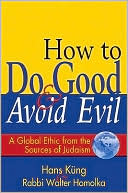Category Books
- Fiction Books & Literature
- Graphic Novels
- Horror
- Mystery & Crime
- Poetry
- Romance Books
- Science Fiction & Fantasy
- Thrillers
- Westerns
- Ages 0-2
- Ages 3-5
- Ages 6-8
- Ages 9-12
- Teens
- Children's Books
- African Americans
- Antiques & Collectibles
- Art, Architecture & Photography
- Bibles & Bible Studies
- Biography
- Business Books
- Christianity
- Computer Books & Technology Books
- Cookbooks, Food & Wine
- Crafts & Hobbies Books
- Education & Teaching
- Engineering
- Entertainment
- Foreign Languages
- Game Books
- Gay & Lesbian
- Health Books, Diet & Fitness Books
- History
- Home & Garden
- Humor Books
- Judaism & Judaica
- Law
- Medical Books
- New Age & Spirituality
- Nonfiction
- Parenting & Family
- Pets
- Philosophy
- Political Books & Current Events Books
- Psychology & Psychotherapy
- Reference
- Religion Books
- Science & Nature
- Self Improvement
- Sex & Relationships
- Social Sciences
- Sports & Adventure
- Study Guides & Test Prep
- Travel
- True Crime
- Weddings
- Women's Studies
How to Do Good and Avoid Evil: A Global Ethic from the Sources of Judaism » (New Edition)

Authors: Hans Kung, Walter Homolka
ISBN-13: 9781594732553, ISBN-10: 1594732558
Format: Hardcover
Publisher: Skylight Paths Publishing
Date Published: April 2009
Edition: New Edition
Author Biography: Hans Kung
Book Synopsis
Explore how the principles of a global ethic can be found in Judaism and how they can provide the ethical norms for all religions to work together toward a more peaceful humankind.
In 1993, the Parliament of the World's Religions endorsed the "Declaration toward a Global Ethic" composed by Hans Kung. In it, representatives from all the world's religions agreed on principles for a global ethic and committed themselves to directives of nonviolence, respect for life, solidarity, a just economic order, tolerance, and equal rights and partnership between men and women. But the declaration was just the first step.
In this impressive volume, Hans Kung, probably the most famous living Roman Catholic theologian, and Rabbi Walter Homolka, head of Germany's Abraham Geiger rabbinical seminary and distinguished professor, draw on the Jewish tradition to show the riches that Judaism can offer people of all faiths and nonbelievers in achieving these directives.
Presenting key sacred texts and theological writings, the authors make the case for binding values and basic moral attitudes that can be found in Judaism's universal message of a better world. Exploring Judaism's focus on ethical conduct over declarations of faith, the authors show that making ethical decisions is indispensable in an ever-changing world.
Publishers Weekly
After years of investigating whether basic ethical principles are shared by all people, Küng, a leading Catholic theologian, brought to the World Parliament of Religions in 1993 the issue of ethical universality. The parliament endorsed a “Declaration Toward a Global Ethic,” which is reprinted at the end of this book. Küng recognized the centrality of ethics in Judaism and worked with Homolka, a Jewish scholar and head of a Jewish seminary in Germany, to demonstrate how Jewish tradition contributes to worldwide values. Six core ethics are identified: the value of the human being; the golden rule; peace; justice; truth and tolerance; equal rights between men and women. For each one, quotations from Jewish sources are presented. The result is a potpourri that shows the authors' diligence in selecting useful references while also demonstrating that stringing together loosely connected citations falls short of creative scholarship. (Sept.)
Table of Contents
Acknowledgments ix
Introduction Walter Homolka 1
Judaism and a Global Ethic Hans Küng 7
Judaism's Universal Gift: An Ethic for Humankind Walter Homolka 19
Core Ethic 1 The value of the human: every human being must be treated humanely.
Sacred Image of Man Abraham J. Heschel 43
Primary Sources 50
Core Ethic 2 The golden rule: do not do to another what you would not want to be done to you.
Love of Neighbor Samson Hochfeld 65
Primary Sources 69
Core Ethic 3 Peace: commitment to a culture of nonviolence and reverence for all life.
The Tent of Peace Hermann Cohen 85
Primary Sources 89
Core Ethic 4 Justice: Commitment to a culture of justice and a just economic order.
Public Prosperity Salomo Samuel 103
Primary Sources 107
Core Ethic 5 Truth and Tolerance: commitment to a culture of tolerance and a life in truthfulness.
Truthfulness Leo Baeck 125
Primary Sources 129
Core Ethic 6 Equal Rights: Commitment to a culture of equal rights and a partnership between men and women.
Standing Again at Sinai Judith Plaskow 143
Primary Sources 147
Afterword: A Vision of Hope
Religious Peace and a Global Ethic Hans Küng 163
Declaration toward a Global Ethic: Council of the Parliament of the World's Religions, Chicago, September 1993 167
Glossary 185
Sources 187
Notes 189
Credits 201
Subjects
 Ethics & Moral Philosophy
Ethics & Moral PhilosophyChristianity
 Judaism & Judaica
Judaism & Judaica  Jewish Philosophy
Jewish PhilosophyChristianity
 Judaism & Judaica
Judaism & Judaica  Theology, Jewish
Theology, JewishChristianity
 All Religion
All Religion  General & Miscellaneous Religion
General & Miscellaneous ReligionJudaism & Judaica
 Jewish Philosophy
Jewish Philosophy  Jewish ethics
Jewish ethicsNonfiction
 Philosophy
Philosophy  General & Miscellaneous Philosophy
General & Miscellaneous PhilosophyNonfiction
 Philosophy
Philosophy  Major Branches of Philosophical Study
Major Branches of Philosophical StudyNonfiction
 Social Sciences
Social Sciences  Jewish Studies
Jewish StudiesPhilosophy
 General & Miscellaneous Philosophy
General & Miscellaneous Philosophy  Jewish Philosophy
Jewish PhilosophyPhilosophy
 Major Branches of Philosophical Study
Major Branches of Philosophical Study  Ethics & Moral Philosophy
Ethics & Moral PhilosophyReligion Books
 Judaism & Judaica
Judaism & Judaica  Jewish Philosophy
Jewish PhilosophyReligion Books
 Judaism & Judaica
Judaism & Judaica  Theology, Jewish
Theology, JewishReligion Books
 All Religion
All Religion  General & Miscellaneous Religion
General & Miscellaneous ReligionScience & Nature
 Social Sciences
Social Sciences  Jewish Studies
Jewish StudiesSocial Sciences
 Jewish Studies
Jewish Studies  Jewish Philosophy
Jewish PhilosophyChristianity
 Christianity
Christianity  All Religion
All ReligionNonfiction
 Religion
Religion  All Religion
All ReligionReligion Books
 Christianity
Christianity  All Religion
All Religion
